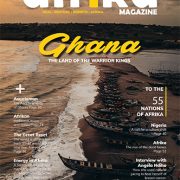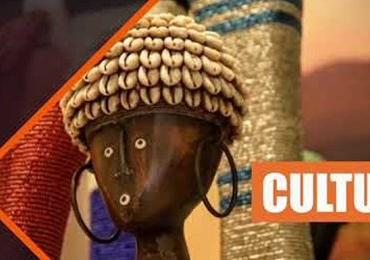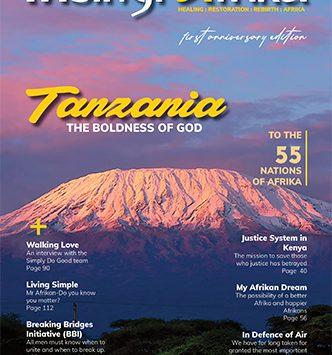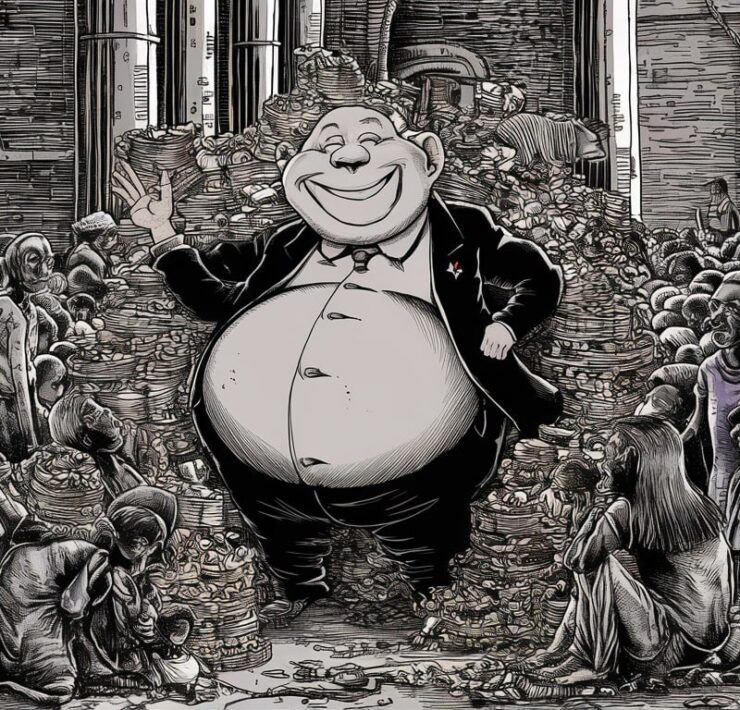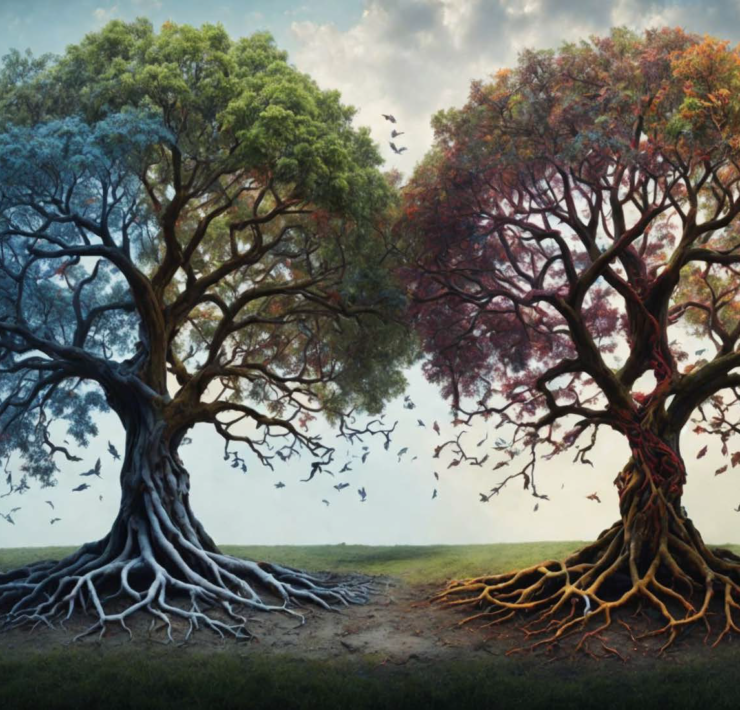Reforming Education in Afrika

Anselm Adodo is the Director of Africa Centre for Integral…
THINKING OUTSIDE OF THE BOX

Have you heard our young men discussing football recently? They know all the latest news on the English Premier League. They can tell you when Manchester United is playing Chelsea and can even predict who wins and by how many goals. Thanks to cable, internet and satellite TV, our young people also know how many soldiers are killed in war zones daily, how many suicide bombings take place and how many people are kidnapped by militants. They know which countries have the most relaxed immigration rules. However, ask them about the health benefits of bananas, or how bush burning affects soil productivity, or what a balanced diet is, and you will be surprised at their level of ignorance.
Young Nigerians and Africans are readily acquiring information about other lands, while rapidly losing knowledge of their land, their environment, their culture and their people. This is a problem, because no nation can genuinely develop until it has a deposit of local knowledge which it preserves and nurtures. Real and lasting development is not imported from other countries – it is home-grown. The art of development is the ability to convert and exploit local knowledge to create relevant, sustainable and affordable technology. The best solutions to a nation’s problems are those which come from within. However, because this is not recognized, indigenous knowledge is not adequately valued – and is being lost at an alarming rate.
In many indigenous societies, when a knowledge-bearer dies, his knowledge dies with him. With every older adult who dies in our villages, the equivalent of a library is lost. Today, we speak of protecting the environment and our rare species of plants and animals. However, equally important is the need for national and international efforts to protect and preserve indigenous knowledge.
At the national level, our country’s education system has a vital role to play in ensuring that indigenous knowledge is shared, preserved and used for our country’s development. However, today, education in many parts of Africa is too preoccupied with other interests and goals. Most students in Africa are brainwashed to think that the reason they go to school is to acquire paper certificates in order to get a career. Our society prides itself in the acquisition of degrees over holistic and integral personal development. What misconception! It is no wonder that our education system in Nigeria, for example, is so examination-oriented. Even infants in kindergarten are expected to sit and ‘pass’ exams.
The goal of education should not be just the mastery of subject matter, but the mastery of one’s person. The goal of education should not be to stuff facts, techniques, methods and information into students’ minds, but rather to teach them how to use ideas and knowledge to develop their personhood. Today, rather than seeing education as a means of personal development, most students see it as a step towards a career, as something that will launch them into a so-called ‘successful’ life. Proper education should help students find a decent calling or vocation, not just a career. A career is a job, a way to earn one’s daily bread. A calling is about life, personhood, values, and one’s vocation and gift to the world. It comes out of one’s inner convictions. A career can always be found in a calling, but it rarely happens the other way around.
For centuries, human beings lived under the illusion that with enough knowledge and technology, we could manage and control the Earth. As new factories and industries began to produce more computers, electronics and machines, we thought we had succeeded in mastering our planet. We thought that a rapid increase in data, words, paper and technical details was equivalent to an increase in knowledge and wisdom. The truth, however, is that as we grew in technical knowledge – in ‘know-how’ – we lost other kinds of knowledge: intelligence, which is characterized by an ability to foresee the consequences of one’s actions; wisdom; and ‘know-why’. Our students graduate from universities with a distorted view of reality, of nature and the cosmos. Some of these students score highly in their examinations and are then regarded as ‘experts’. They are brilliant and intelligent. They have the technical know-how, but they cannot ask the more profound questions of life. University education provides students with answers – without them even knowing what the questions are.
It is worth noting that the people whose work and ideas have led to the destruction of the ecosystem, disturbance of climate stability and depreciation of biological diversity are not ignorant. Indeed, most of these people have letters after their names. For humanity to survive, we must give up the misleading conception that western culture represents the pinnacle of human achievement.
University education has three aspects: form, process and content. Form – which is the focus of almost all discussions about university education in Nigeria, for instance– refers to a university’s physical structures, bureaucratic systems, salary and finance systems and organogram. Process refers to the relationships between vice-chancellors and lecturers, between students and lecturers, and between the university and the host community, as well as the society at large. The third aspect is content, which refers to the curriculum and the literature used in teaching. A look at the content of Nigeria’s university curricula indicates that colonialism is still very much alive and active, and true independence is still far off. In my view, University education is the most colonized aspect of African life.
Each year we churn out graduates who lack knowledge of their history, have no appreciation for their tradition, and who see reality through the prism of western reality. The decolonization of our university curricula and literature is, for me, the most urgent reform of education that is needed in Nigeria and Africa. I look forward to the days when strikes by university lecturers will not just be about money and finance (form), but also about morality (process) and the quality of the curricula (content).
It is not enough to engage in education. The structure of the education itself must be examined and challenged. It is not enough to study scientific truths; how science arrived at such ‘truths’ has to be questioned. Science does not exist independently of its cultural context, despite its pretence to undiluted objectivity. While education can bring liberation, it can also be a means of keeping people in bondage.
Moreover, lest we forget, education is no guarantee of decency, prudence or wisdom. Learning in itself will not make us better people. The worth of education must be measured against the standards of decency and human survival. It is, therefore, wrong to think that education in itself will save humanity. Our survival in the next century depends on education, but not education as we have conceived it for over 60 years. We need a new kind of education.
What's Your Reaction?
Anselm Adodo is the Director of Africa Centre for Integral Research and Development, Nigeria and founder of Arica's foremost herbal research Institute, the Pax Herbal Clinic and Research Laboratories (Paxherbals). His research interest is Phytomedicine, Taxonomy of African medicinal plants, indigenous knowledge systems, rural community development, Africanized economic models, health policy reform, and education transformation in Africa. Apart from publications in journals, magazines, national dailies and peer-reviewed journals, Anselm has written more than ten books. He is an adjunct visiting lecturer at the Institute of African Studies, University of Ibadan, Nigeria, an Adjunct Research Fellow of the Nigerian Institute of Medical Research, a Fellow of the Nigerian Society of Botanists, a Research Associate at the University of Johannesburg, South Africa, and an adjunct professor at Morehouse School of Medicine, Atlanta, Georgia, USA.








